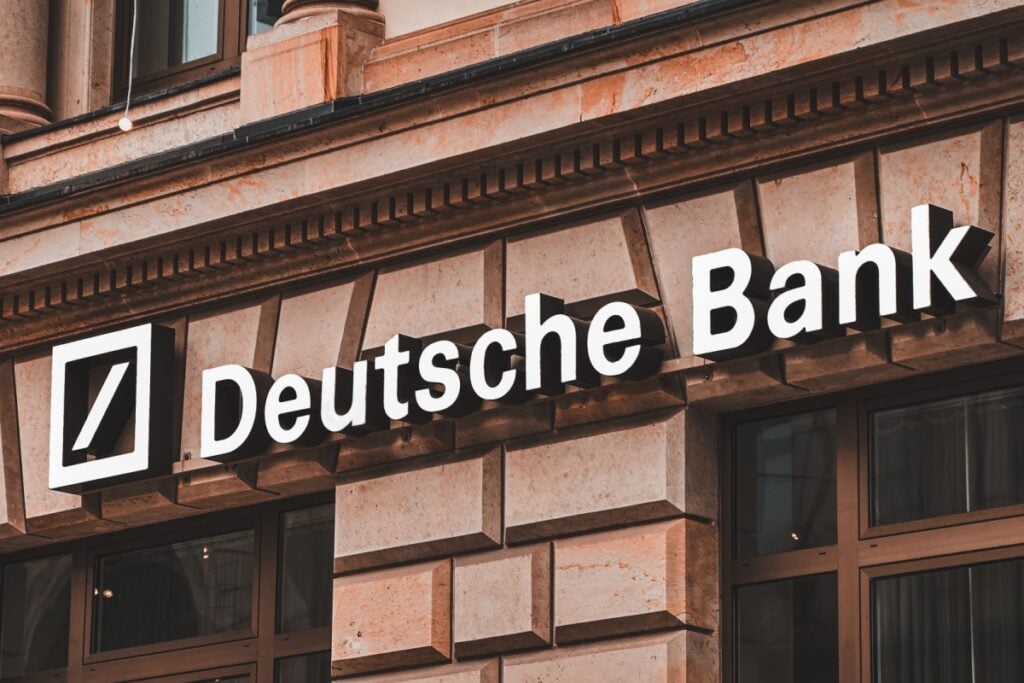The surge in artificial intelligence stocks has created what Stefan Hoops, chief executive of Deutsche Bank’s asset management unit DWS, sees as a powerful but potentially unstable phase for global markets. The firm manages about 1.1 trillion euros in assets and is analysing whether the AI boom could unwind faster than previous technology cycles, given how concentrated recent gains have become.
Since ChatGPT was launched in November 2022, AI-linked companies have dominated major U.S. benchmarks. Estimates suggest that such stocks are responsible for roughly 75% of the S&P 500’s returns. The “Magnificent Seven” group of large technology names – including Nvidia and Meta Platforms – has added trillions of dollars in market value, with Nvidia alone now valued at around 5 trillion US-dollars.
Hoops said there is effectively “no playbook” for judging how an AI-driven rally of this kind might correct. Unlike the 1990s dot-com bubble, when professional money managers were at the centre of speculative trading, today’s upswing is being driven by retail investors who have only limited experience of a drawn-out downturn in this sector.
Retail Investors At The Center Of The Trade
DWS is examining how these individual investors may react if sentiment sours. Many small traders have built positions in AI leaders by repeatedly “buying the dip” after short pullbacks, often paying less attention to valuation metrics than institutional funds. Hoops warned that it is unclear whether this behaviour would continue in a more persistent sell-off, or whether investors might quickly lock in profits, amplifying any slide.
The heads of Morgan Stanley and Goldman Sachs have recently pointed to the risk that U.S. equities could face a setback after a multi-year run driven in large part by AI enthusiasm. Researchers at Capital Economics estimate that the share of U.S. household wealth held in equities is now at its highest level in at least 75 years, leaving retail investors more exposed to swings in technology valuations.
Market nerves have already appeared, with major technology indices retreating from record levels even as AI bellwethers remain sharply higher for the year. Hoops said DWS still sees artificial intelligence as a transformational force for business models across sectors, but argued that investors will ultimately need evidence of revenue growth and new products, not just efficiency gains, to justify the most stretched valuations.
DWS Positions For AI While Flagging Risks
The Frankfurt-based manager is trying to balance enthusiasm for AI’s long-term impact with concern over near-term pricing. Hoops said DWS “still loves” the data-centre infrastructure that supports AI computing power, citing strong demand for servers, networking equipment and specialised real estate. The firm plans to commit more capital to physical data-centre projects, even as it exits mature holdings such as its stake in the NorthC data-centre fund.
Internally, DWS has been through a substantial overhaul. Since Hoops became CEO about three years ago, the asset manager’s shares have risen by roughly 80%, helped by record net inflows of 40.5 billion euros in the first nine months of the current year. Much of that growth has come from its Xtrackers passive platform, while the group works to improve returns in active funds and private assets through initiatives including a new credit partnership with Deutsche Bank.
Hoops described recent tremors in parts of the U.S. credit market as more of a “wake-up call” than a systemic threat. Still, he argued that investors need to examine more carefully the collateral behind higher-yielding private credit deals after years in which money was cheap and underwriting standards loosened.
Questions Over Europe’s Growth And Market Depth
Beyond AI, Hoops pointed to structural challenges facing European capital markets. While DWS has benefited from some overseas clients diversifying away from the United States, he said European governments must do more to foster growth and deepen local equity markets.
Hoops expressed support for proposals – including those backed by German Chancellor Friedrich Merz and other leaders – to develop a pan-European stock exchange that could channel more domestic savings into productive investment. Building such a platform, he acknowledged, would be technically and politically complex, but could help reduce Europe’s reliance on U.S. markets for capital and liquidity.


